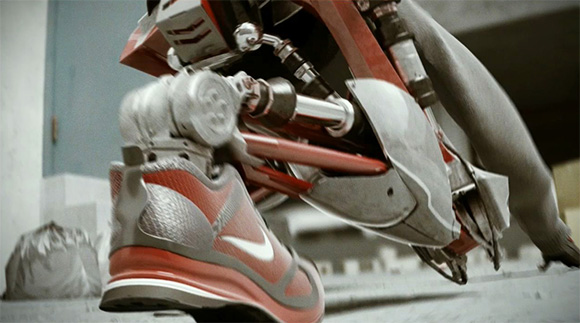Foxconn is investing massively in one million robots, hoping to remove from its factories much of the pesky human element, that thing which has caused it so much consternation, and other corporations which have relied on cheap Asian labor are following suit. What are the ramifications for the individual laborer and the global economy? From Sam Becker at Business Cheat Sheet:
“You can’t really blame companies like Nike or Foxconn for what they’re doing — after all, they’re businesses, and their job is to turn a profit for shareholders and the company’s owners. That’s why they exist. They do not exist to supply jobs. However, the jobs that big companies like these do add to the economy are immensely important to the integrity of society as a whole.
So what happens when they start to disappear? Obviously, these disappearing positions will have a giant economic effect on developing nations, particularly countries that have been used for cheap labor over the past few decades. Many of the world’s struggling nations that depend on large influxes of capital investment and jobs from American and European companies are going to face some tough situations as automation continues to spread, as they have built their economic backbone as popular choices for companies looking to outsource.
It looks like the other shoe is about to drop, and they will now experience the same situation many Americans were faced with a decade or two before them. The question is, what will the ultimate fallout from that be? We’re talking about the possibility of tens of millions, if not hundreds of millions of workers losing their jobs over the next two decades, if things continue to pick up.
While we have always heard of a future in which robots would be handling most of the labor, it’s hard to think that most people pictured it in the way that things seem to be heading. Sure, automated work forces will be handling many of the world’s tasks in a relatively short amount of time, ushering in a new era of prosperity and leisure for the masses. The problem is that that prosperity hasn’t been shared, and many of the world’s poor and middle classes will end up scrambling to make ends meet as a result.
It’s unclear what the endgame of this dramatic shift from human labor to automation will be, but it’s clear that we are in the early stages of it. What policymakers and economists will need to do is to figure out how the vast majority of the planet’s masses will care for themselves if there is suddenly a huge shortage of work and opportunity.“
Tags: Sam Becker

